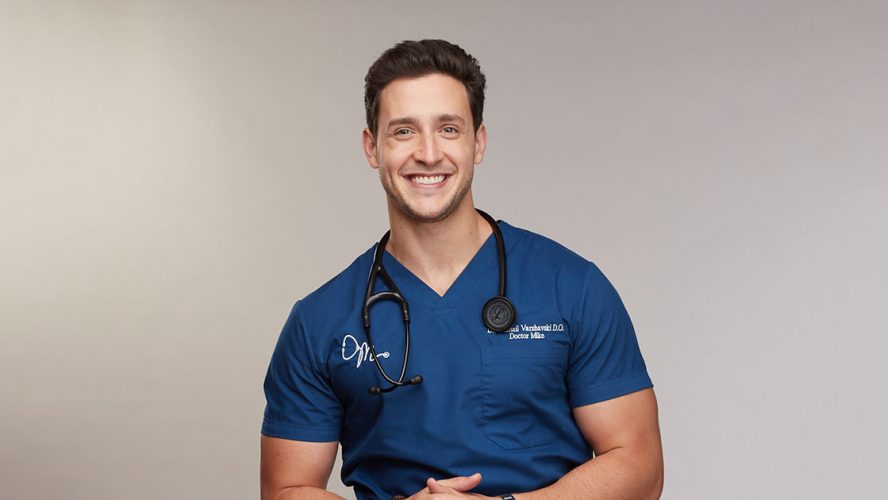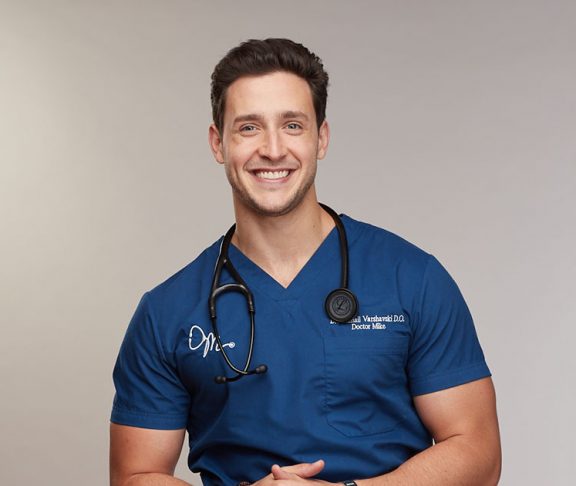Dr. Mike Varshavski, the physician whose YouTube channel has over 4.5 million subscribers, did not imagine a career in medicine would lead to online fame. In 2015, after his Instagram caught the attention of virtually every news media outlet, he decided to use his platform to champion quality healthcare. “I initially started using social media as a way to show that you don’t have to give up your life to be a medical student,” he said.”Later, it allowed me to generate attention for evidence-based medicine and ways to improve our broken healthcare system.”Varshavski had dreams of becoming a doctor from an early age. “My father was a practicing physician in Russia,” he said. When Varshavski was six and the family moved to the States, his father had to go through medical school allover again. “Witnessing that whole journey, I truly fell in love with the career,” Varshavski said.
Like father, like son
Following in his father’s footsteps, Varshavski became a doctor at 24, making him one of the youngest in his cohort. He considers his new online persona as an equally important part of providing quality medical information. He initially faced criticism from inside the medical community. “I got a lot of resistance and pushback from other physicians in the field,” he said. “There is this fear that by being on social media, it somehow lowers the authoritative nature of being a doctor, it makes you seem unprofessional by showing your personal side.”
The human touch
Varshavski instead saw the potential of a social media presence. “I thought it was more beneficial to show that we are human” he said. “It fosters a very healthy doctor-patient conversation. When patients come into my office after they’ve seen so much of my content, we can start talking about their conditions as if we’ve known each other for much longer than ten minutes.”The benefits don’t end there. Varshavski argues that in this age of misinformation, medical professionals have a duty to help spread quality healthcare information online to counter untrustworthy sources. “Because of the way social media algorithms work, the most extreme views —often the most inaccurate views —get the most attention,”he said. “If a headline states ’walking barefoot is better than chemotherapy for cancer,’all of a sudden, folks will click on that and the algorithm will increase its reach.”

A prickly subject
The perfect example is the current rise in anti-vaccination, a problem that Varshavski says was fueled by misinformation on social media. “If we had more doctors on social media providing counter-information, meaning quality information debunking the anti-vax message, it would prevent misinformation from thriving,” he said. Social media isn’t the only technology Varshavski is embracing. Telemedicine, or a digital doctor’s visit, is in its infancy, but Varshavski sees a bright future for online medicine. “I don’t think it replaces a doctor’s visit, but it can bean adjunct option for those who are time-restricted, geography-restricted, or simply because it’s convenient for them,”he said. “On top of that, we’re going to have algorithms coming out that are going to help us doctors make better decisions—whether that means better decisions on what treatment to give or what lesions to biopsy. These algorithms are going to help us deliver better care.”
An outlier going mainstream
Varshavski’s journey is not the typical one for a medical professional, and he is the first to admit that visibility on social media doesn’t suit everyone. But he encourages doctors and physicians to seek out other ways to engage with online discourse. “I want doctors to understand that they don’t necessarily have to be in front of the camera to be able to be present on social media,” he said. “I’m consistently trying to hire doctors to help me research stories to review and discuss. Newspapers and major news organizations are looking for physicians for their medical news staff. All of those are ideal ways for doctors to get involved with social media without necessarily putting their faces out there, or putting their lives out there. There’s no one-size-fits-all approach.”

